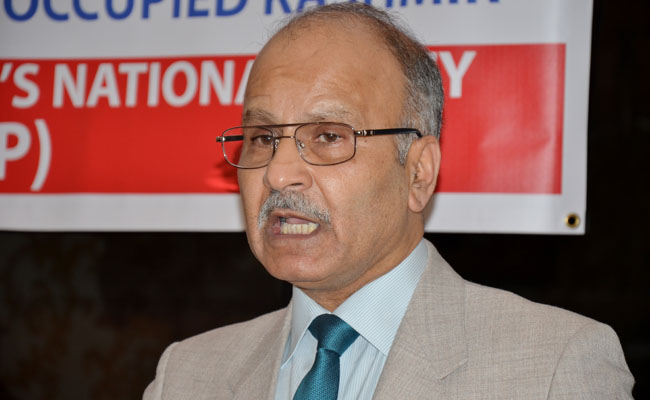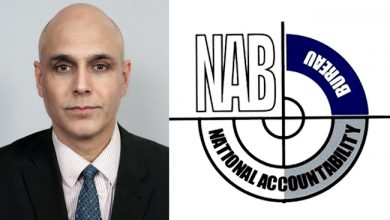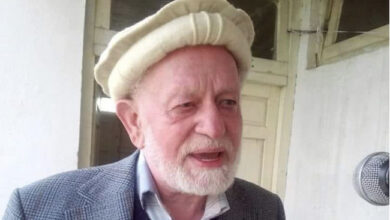Will Pakistan empower people of Azad Kashmir?

Written by: Dr Shabir Choudhry
A full-blown debate on Act 74 with many dimensions is raging in Azad Kashmiri political circles and on social media. Some people are even wrongly portraying that they are the first one to oppose the Act 74; or demand its abolition. They give this impression that as a result of their opposition, Islamabad has decided to rescind the Act 74 or Kashmir Council. This is not true.
It is historical fact that the leaders of Jammu and Kashmir Plebiscite Front were the first to oppose the Act 74 in 1970s in very difficult time. From platform of JKLF, I and many other leaders like Amanullah Khan, Zubair Ansari, Afzal Jatalvi and others systematically opposed the ACT 74 in 1980s. Abbas Butt, Zubair Ansari and I opposed it from the platform of Kashmir National Party, after we left the JKLF and established the new party. We also opposed this unjust and imperialist Act from different platforms and in various national and international conferences in the past decades.
This is not to say that some other political parties have not opposed the Act 74. I, for one, will acknowledge valuable contribution of other nationalist parties, especially UKPNP, NAP and others.
Is Pakistan going to empower people of Azad Kashmir?
Some people are praising Raja Farooq Haider that because of his struggle, Pakistan will abolish Act 74 or abolish Kashmir Council; and empower people of Pakistani Administered Kashmir. Before we analyse what Pakistan can give us or wants to give us, we need to current relationship between Pakistan and so called Azad Kashmir.
In my considered view, which is based on irrefutable evidence; and is shared by other true nationals, relationship between Azad Kashmir and Pakistan is that of occupier and occupied. Pakistan’s policies with regard to Jammu and Kashmir have been imperial in nature; and have been camouflaged in name of religion to hoodwink people.
An imperial country does not empower occupied people. They exploit their resources; and systematically create a class of collaborators to serve and protect their interests. Occupiers and imperialists enslave people, mentally and physically, by use of massive propaganda; and by depriving them access to their history, culture and appropriate education.
We people of Jammu and Kashmir, especially people of Azad Kashmir and Gilgit Baltistan need to understand that a country that can’t or is unwilling to empower their own people, will NEVER empower us, who are not legally part of Pakistan.
There is a long history of denial of fundamental rights to people of East Pakistan and other provinces like Balochistan and Sindh. Those Pakistanis who complained or openly exposed Pakistani policies were castigated as traitors and agents of India and imprisoned and killed. I have no time to explain what happened to people of East Pakistan in their long struggle to become Bangladeshis; and how many millions died and how many thousand women were raped.
One thing must be understood that our motherland is occupied by three countries, namely Pakistan, India and China; and Pakistan was the first country that attacked us on 22 October 1947, with intention of occupying us. By keeping this relationship in mind, we can presume what is in store for us.
Those who have any illusions in mind with regard to our relationship with Pakistan should remember what was said to Farooq Haider, when he expressed his opinion on the disqualification of Nawaz Sharif and questioned rationale of accession to Pakistan. He was systematically attacked and defamed on Pakistani media. Some called him a traitor; and others used extremely objectionable language against an elected Prime Minister of an area which is not legally part of Pakistan. Some even said that we should send one Hawaldar to arrest him and bring him to Islamabad. This statement sums up our relationship with Pakistan.
What can Pakistan give us?
In view of the above relationship, what can Pakistan give people of Pakistani Administered Kashmir to ‘empower them’. With each administrative structure Pakistan enacted for us, Pakistani hold on the territory was strengthened. Before the Act 74, there was Act 70. It is beyond the scope of this short article to compare the two Acts or the previous Acts like Azad Jammu and Kashmir Government Act 1964, Act 1968; or Rules of Business of 1952 and 1957. However, suffice to say that with Act 74, the Pakistani hold on Azad Kashmir became even stronger.
We are called Azad, but there is very little our elected or selected government can do without the permission of Rulers and agencies of Pakistan. Political and administrative hold of the Pakistani parties in Azad Kashmir is almost complete. We cannot even select candidates for elections.
The last gift from Islamabad in the form administrative structure was given to us in 1974, a document prepared by the Pakistan Law Minister Abdul Hafeez Pirzada. Our ‘empowered and liberated’ Assembly Members signed the document without even reading it because Pirzada Sahib had no time to wait. His mother was unwell and wanted to go back to Islamabad with a signed document.
After 44 years of political struggle, we hear that something new is being considered. My fear is what is coming, may not be good for us. They may change a title, or put a new label on the bottle by curtailing more powers.
The educational, legal and political system prevailing in Azad Kashmir, only produces more mental slaves of Pakistan. Pakistan has the following institutions that control Azad Kashmir; and without their consent no Prime Minister of Pakistan can give any more rights to people of Azad Kashmir. It is practically not in his power to do it.
- General Head Quarters;
- Inter-Services Intelligence;
- Military Intelligence;
- Intelligence Bureau (more than 12 other agencies);
- General Officer Commanding, Murree;
- Prime Minister of Pakistan;
- Minister of Kashmir Affairs;
- Kashmir Council;
- Chief Secretary;
- Inspector General Police;
- Finance Secretary
- Accountant General
All the above are Pakistanis; and treat Azad Kashmir as a conquered territory. Which one of the above will voluntarily relinquish his powers to empower people of Azad Kashmir?
Apart from undeniable consent of the above institutions and individuals, those who practically rule Pakistan, will have to take other matters into consideration, for example, implications of the CPEC. What are the Chinese concerns with regard to Gilgit Baltistan and Azad Kashmir; and how to satisfy them. In my opinion, Chinese demand would be to end this ambiguity related to the legal status of these areas.
In view of the above scenario what can we practically get. May be a new lollypop or a new and beautiful label with old wine; or maybe they change the bottle to make us think that we have got something new. For example, if they change name of the Kashmir Council to Senate, or something else with some other cosmetic changes, will we be happy?
Remember, imperial powers give with one hand, and take back with both hands. Imperial powers do not relinquish their hold voluntarily to gratify people of their colony. When they find it difficult to keep their control, they pass on the power to their proxies who have been set up and nourished for this purpose that they can serve their interests after they leave. In my view, for Pakistan that stage has not arrived in Azad Kashmir, if anything, their hold on this territory is stronger than ever, hence nothing substantial is coming our way.
The writer is Chairman of South Asia Watch, London, and author of many books on Jammu and Kashmir and terrorism.
Drshabirchoudhry@gmail.com





